I have frequently maintained that the Australian Bureau of Statistics (ABS) reported $48 billion in education exports are inflated and vastly overstates the benefits of international students to the Australian economy.
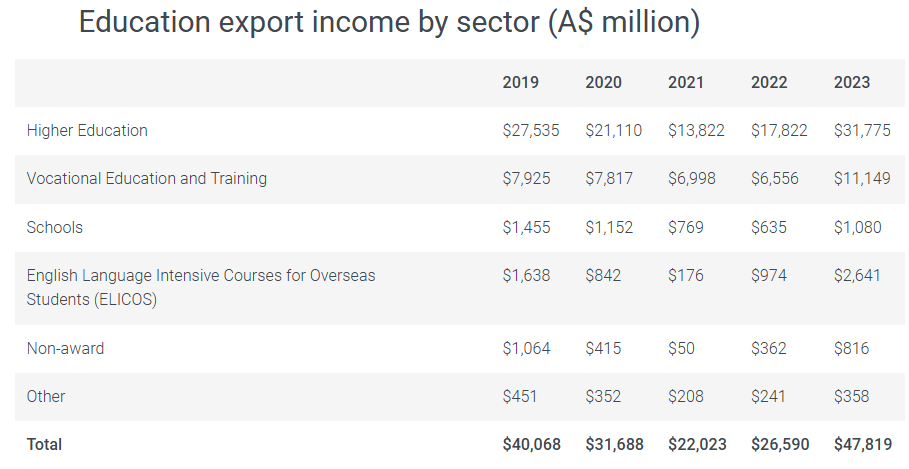
Source: Department of Education
The ABS obtains this impressive export figure using “an average spend estimate from Tourism Research Australia … supplemented by the addition of total expenditure on course fees”.
The ABS incorrectly classifies all spending by international students as exports, even when the expenditures are paid for with income earned in Australia.
The chart below shows World Bank data on migrant remittances to and from Australia:
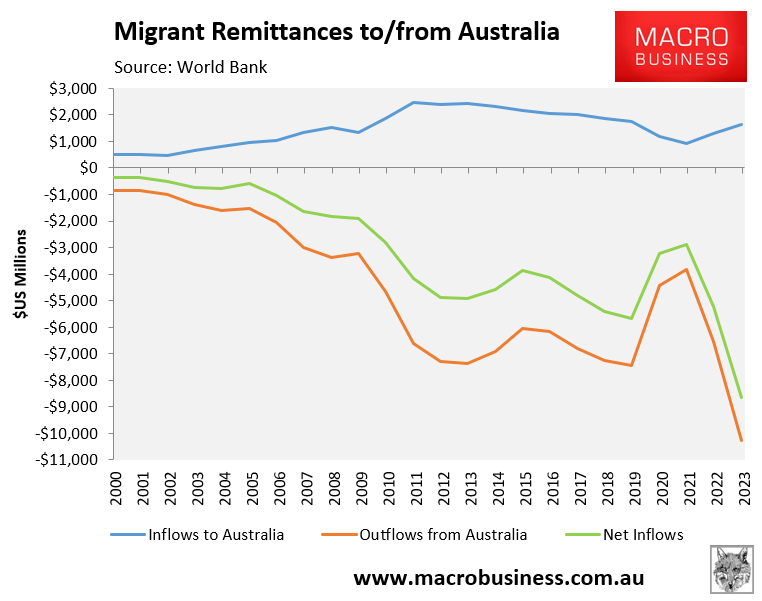
In 2023, migrant remittance inflows to Australia were only $US1.6 billion, while outflows totalled $US10.3 billion, culminating in a record net outflow of $US8.6 billion.
The net outflow of migrant remittances has also coincided with the rise in net overseas migration (students):
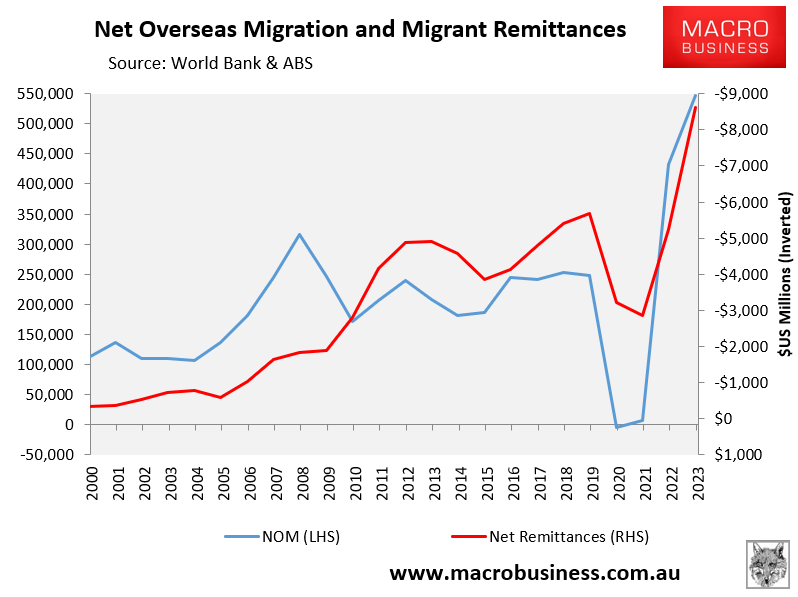
As net overseas migration (students) increased, so did the flow of migrant remittances.
The truth is that overseas students working in Australia fund a considerable portion of their expenses.
The ridiculousness of the situation is highlighted by Allianz Partners partnering with Foodbank Australia “to help alleviate the burden of financial hardship and food insecurity among international students studying in Australia”.
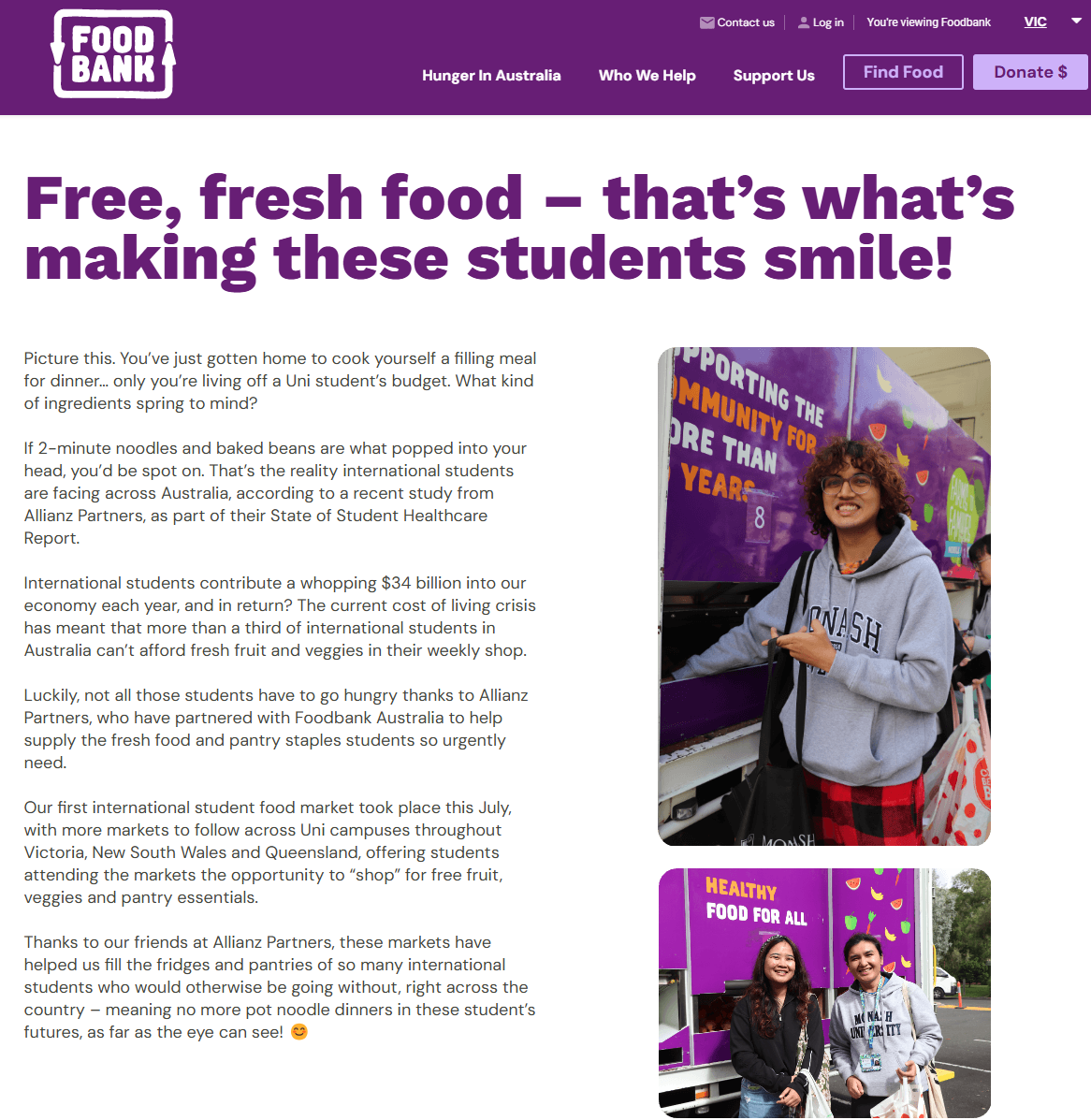
International students contribute a whopping $34 billion into our economy each year, and in return? The current cost of living crisis has meant that more than a third of international students in Australia can’t afford fresh fruit and veggies in their weekly shop…
Miranda Fennell, Executive Head of Health and International Student Wellbeing Spokesperson, said this partnership is a proactive step towards improving the wellbeing of international students studying in Australia, amid rising hardship.
“The rising cost of living has led international students to rely on charitable organisations to meet their most basic needs, emphasising the need for further support,” Miranda Fennell said.
Matt Barrie noted recently that “YouTube and Tiktok are full of videos from international students explaining how to rort free food out of the system:
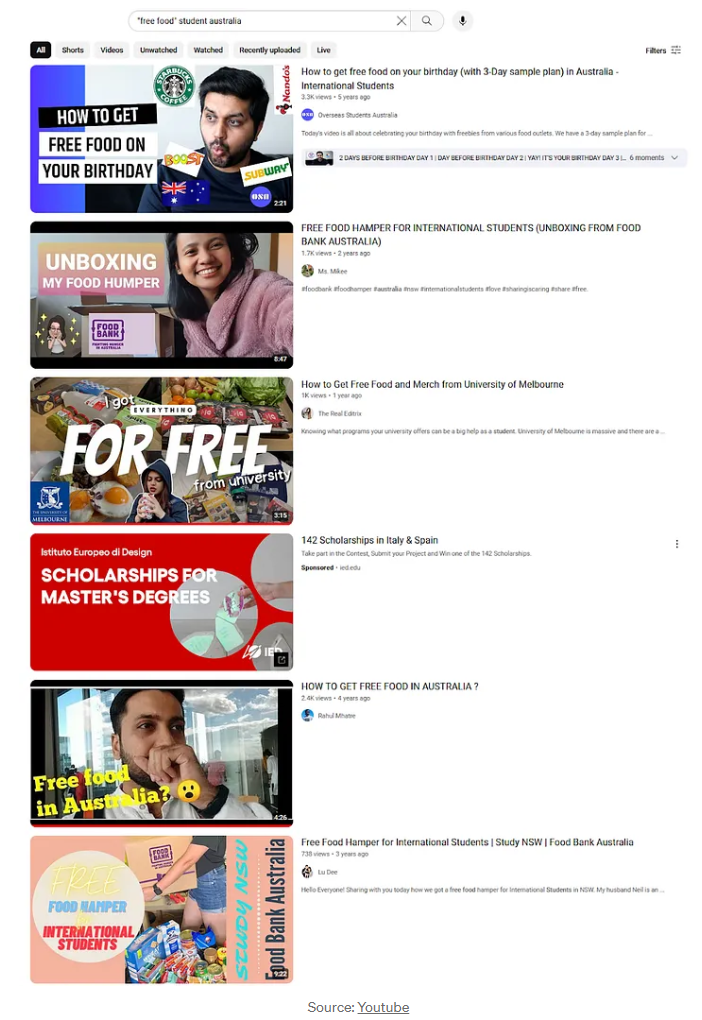
“I’m not sure why we’re providing visas for international students who can’t afford to feed themselves”, Barrie said.
“This is supposed to be an “export” not a humanitarian program”.
Last month, The SMH reported that “demand for the University of Sydney’s student-run food welfare service, FoodHub, which offers free food and essential items such as toiletries, rose 60% in the past year, with international students making up 93% of the 57,000 students who used the service in 2024”.
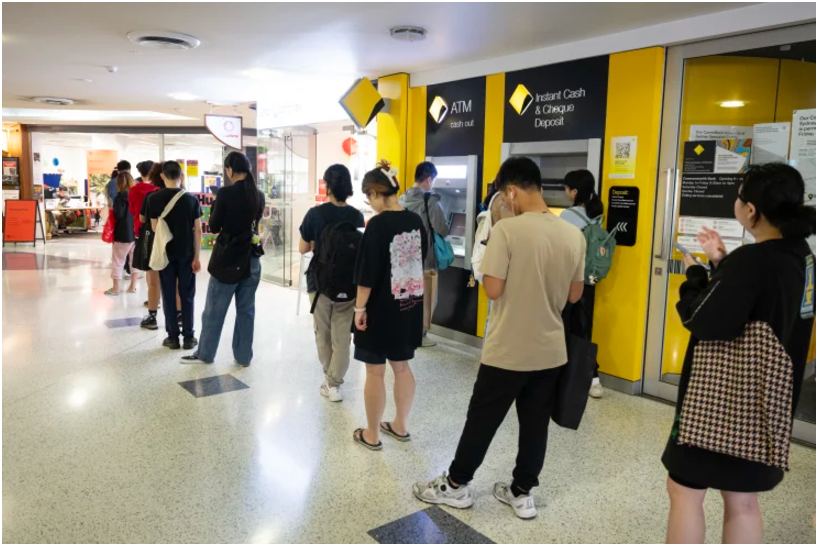
Queues for Sydney University’s food welfare service stretch well outside the door. Almost all were international students.
What use is having education “exports” who are working poor?
These students must work to support their living expenses, compete for employment with younger Australians, and rely heavily on charity to get by.
When overseas students become a drain on charitable services, it proves that their economic value to Australia has been wildly overestimated.

